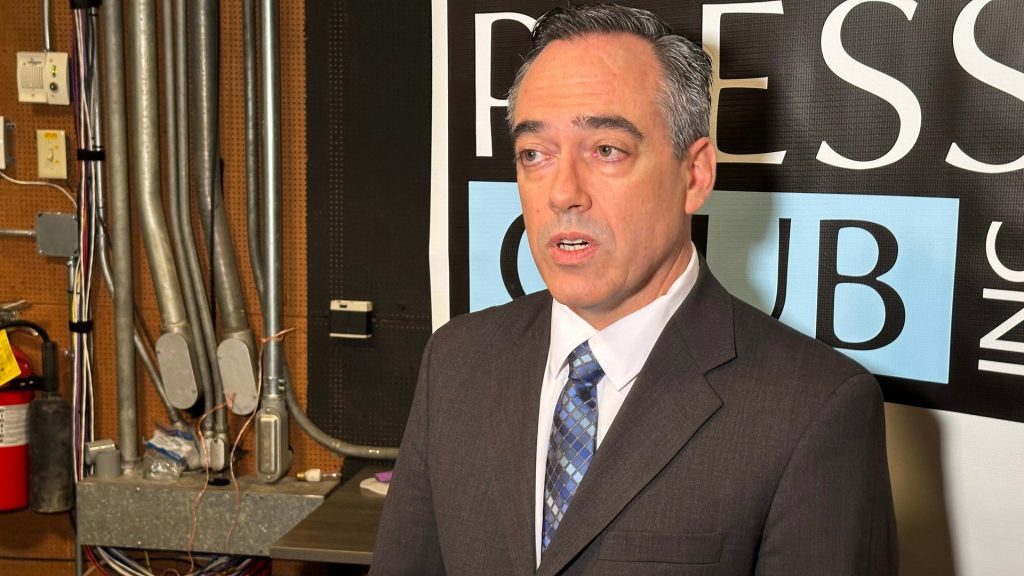High electric bills proved a motivating issue for voters in Georgia, New Jersey

Rising electricity bills were on the minds of millions of voters as they cast ballots on Tuesday. From Georgia to New Jersey, election results show that electric affordability is becoming a potent political issue.
Two Democratic challengers running for statewide positions on the Georgia Public Service Commission scored decisive victories, unseating Republican incumbents by a double-digit margin. The commission oversees the state’s electric utility company, Georgia Power.
While some outside observers view the victories as a national bellwether showing that Democrats can win in key battleground states, the dynamic in Georgia revolved more around how voters felt about their rising monthly bills. As challengers running against incumbents who had approved numerous rate increases, the Democrats held an advantage that allowed them to make gains in deep-red portions of the state.
“This was a referendum on Georgia Power and high electric bills,” said Daniel Tait, research and communications director at the nonprofit utility watchdog group Energy and Policy Institute.
The Georgia utility commission
With 62.7% of the vote, Democrat Alicia Johnson defeated Republican incumbent Tom Echols, who received 37.3%. For the second commission seat, Democrat Peter Hubbard also won with 63% over Republican incumbent Fitz Johnson’s 37%.
The incumbents were part of the five-seat commission that voted to raise electricity rates six times in the past two years, according to the Georgia Recorder.
“Affordability is front and center in voters’ minds,” Hubbard told the Recorder.
According to a calculator on the Georgia Public Service Commission website, a customer using 1,000 kilowatt-hours of electricity each month would have paid $203.81 over the summer of 2025, an increase of $19.79 from the summer of 2024. Winter rates have also increased by about $15 per month.
The outrage aimed at incumbents stems not only from high monthly bills but also from the high profit margin for Georgia Power, a subsidiary of Southern Company.
The commission sets how much return on equity Georgia Power can make back on its capital investments to build new electric grid infrastructure. With an 11.9% return margin, Georgia Power made $4.4 billion in earnings in 2024, according to Atlanta News First. The average return on equity for regulated utilities hovers below 10%.
The Republican candidates stated that they would not raise rates further and claimed that their opponents’ policies would compromise the reliability of the grid. But Tait said the results point to the fact that, regardless of party affiliation, “the people recognize who’s doing favors for the utility companies and who’s paying for it.”
The New Jersey governor’s race
In New Jersey, Democrat Mikie Sherrill won by 13 points over Republican Jack Ciattarelli. As part of her campaign platform, Sherrill promised to declare a state of emergency regarding utility costs and freeze utility rates.
“Energy affordability was the top issue in this election,” said Alex Ambrose, a policy analyst at the nonpartisan think tank New Jersey Policy Perspective. In an interview with SAN, Ambrose described how, earlier this year, the cost of electricity in New Jersey went up just before a summer heatwave hit.
“When people got those bills for the summer, that was a huge shock,” Ambrose said.
Ciattarelli also recognized the importance of high electric bills, making energy a key campaign issue. Ciatarelli said part of the problem was Democrats shutting down coal plants and not wanting to increase production from natural gas power plants. He also criticized Democrats for supporting an expansion of offshore wind power, which has been divisive for Jersey Shore communities.
Despite the controversy around offshore wind, Ambrose said the election results demonstrate that voters believe “clean energy is now one of the solutions to energy affordability.”
Are electric bills a winning political issue?
As electric utility rate increases have affected people across the country, a politicized debate has raged around who is to blame and what the solutions are.
“People are just fed up with high power bills,” Tait said.
Victories in Georgia, New Jersey and Virginia, where high electric bills were also an important campaign issue for Democratic candidate Abigail Spanberger, suggest that Democrats have been more effective at harnessing voters’ anger.
However, exit polling complicates that narrative. CNN talked to over 4,000 New Jersey voters and found 51% of voters who said electric bills are a “major problem” voted for Ciattarelli, compared to 48% who voted for Sherrill. Among voters who said high electric bills were a “minor problem” or not a problem at all, Sherrill scored about 65%.
In Georgia, Tait said the lesson is bipartisan: “Monopoly investor-owned utilities are deeply unpopular.” And regardless of political affiliation, he added, “politicians need to think twice” about aligning with utility companies.
Republicans will still hold a 3-2 majority on the Georgia Public Service Commission. Two seats, including the seat Hubbard won, will be up for election in 2026. Even without flipping the partisan majority of the commission, Tait said, “the magnitude of what happened last night is probably a wake-up call to sitting commissioners.”
The post High electric bills proved a motivating issue for voters in Georgia, New Jersey appeared first on Straight Arrow News.





